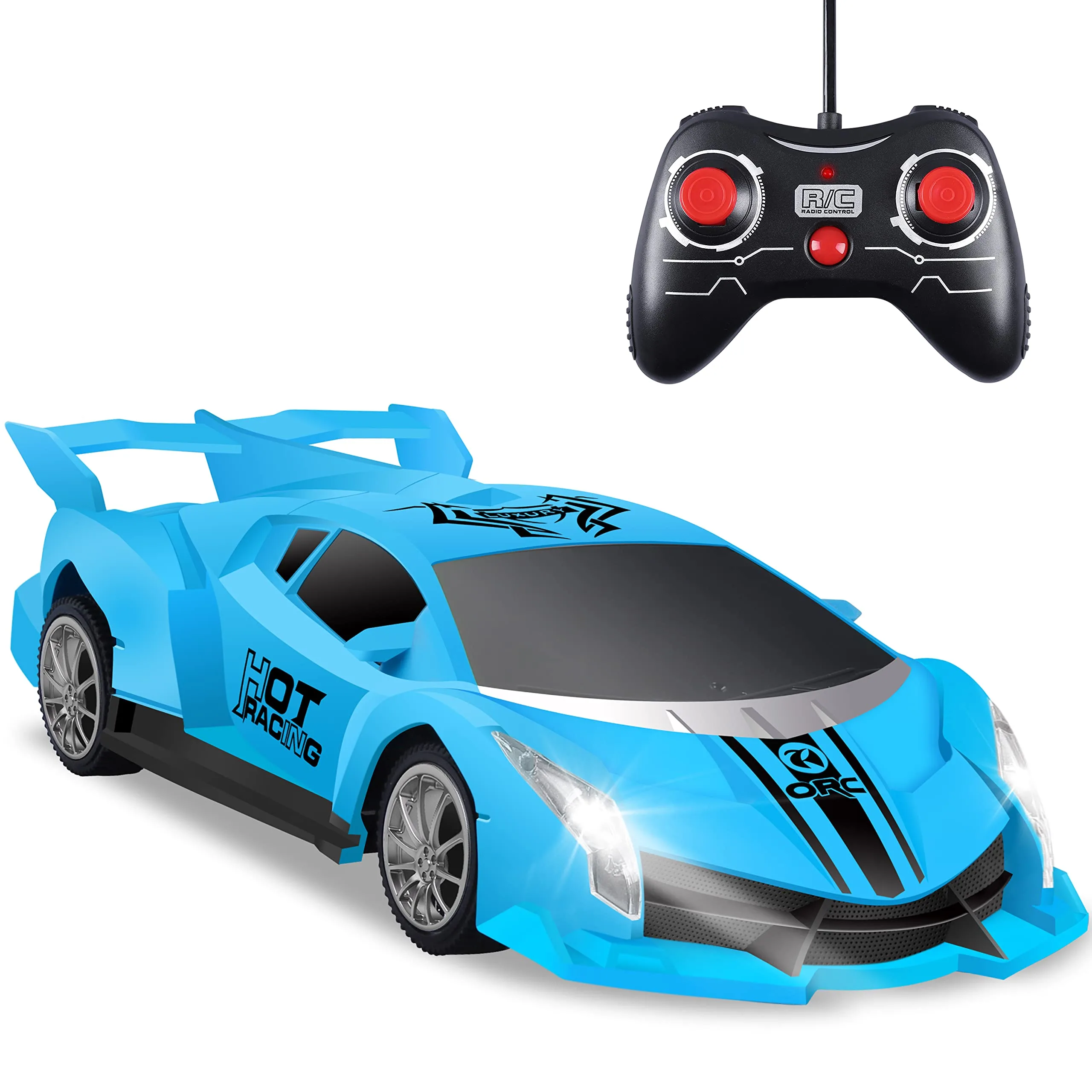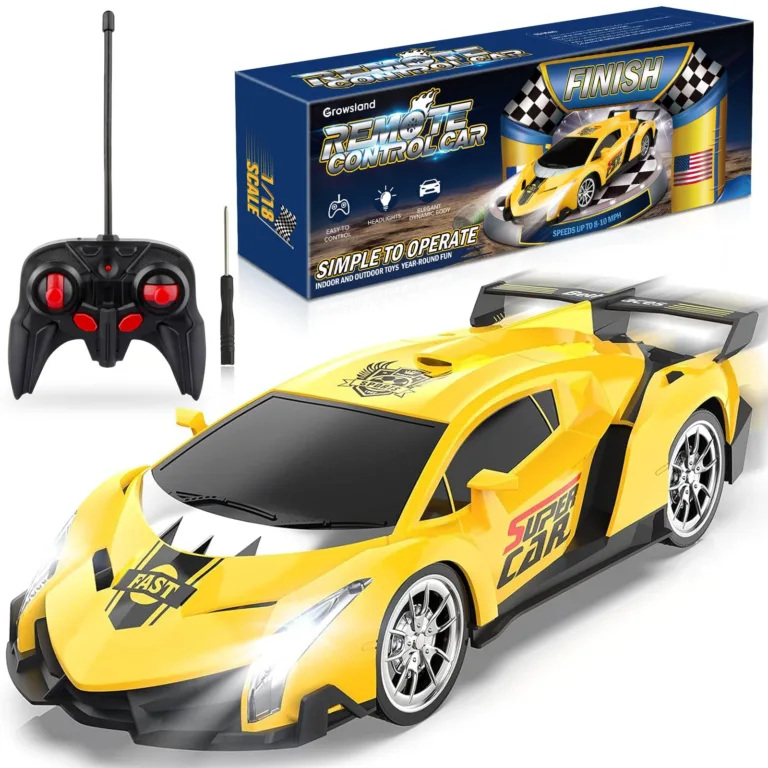Experience the thrill and joy of a control car, an innovative blend of engineering and recreation that has captivated enthusiasts for decades. As you dive into the fascinating history the post outlines, you’ll discover not just how these toys evolved, but also the remarkable features that set them apart. Moreover, we’ll explore various types of control cars tailored for different uses, showcasing how technology has transformed their design and functionality over time. Get ready to unleash your inner child and find out how to choose the right control car for your next adventure!
The history of control cars: A fun journey through time
The history of control cars takes us back to the 1960s, when the first radio-controlled vehicles emerged, capturing the imagination of hobbyists and children alike. Here’s a fun breakdown of their evolution:
- 1960s: The initial versions of control cars were simple, with limited range and functionality. They paved the way for more complex designs.
- 1970s: As technology improved, manufacturers introduced electric-powered models, enhancing speed and control.
- 1980s: The introduction of nitro gas engines revolutionized the control car world, allowing for faster and more powerful options.
- 1990s: Digital advancements led to programmable control systems, enabling hobbyists to customize their vehicles.
- 2000s and beyond: The rise of brushless motors and lithium batteries expanded performance and run times, leading to the creation of high-speed racing cars.
Today, control cars continue to impress with a blend of engineering, creativity, and technology, ensuring there’s something for everyone, whether for racing or leisurely cruising. Each era left its mark, transforming control cars into the thrilling toys we enjoy today!

Key Engineering Features That Make Control Cars Unique
Control cars stand out due to several innovative engineering features that enhance performance and user experience. Here’s a look at what makes these miniature vehicles truly special:
-
Precision Engineering: Control cars utilize advanced materials and designs to ensure durability while maintaining lightweight structures. This combination allows for speed and agility on various terrains.
-
Powerful Motors: Most control cars are equipped with brushless or brushed motors, delivering impressive acceleration and top speeds. This gives enthusiasts the thrill they seek during races and maneuvers.
-
Responsive Steering Systems: With advanced steering mechanisms, control cars can change direction quickly. Users experience a high level of control, making it easy to navigate tight turns and obstacles.
-
Enhanced Suspension: The specialized suspension systems help absorb shocks, improving stability and handling. This engineering feature provides smoother rides, even on rugged surfaces.
-
Battery Technology: Modern control cars come with high-capacity lithium polymer (LiPo) batteries, offering longer run times and faster charging speeds.
By focusing on these unique engineering features, control cars continue to evolve, providing exhilarating experiences for hobbyists and casual drivers alike.
The Different Types of Control Cars and Their Uses
When it comes to control cars, variety reigns supreme! Each type offers unique features, making them ideal for different activities and preferences. Here’s a quick breakdown:
-
Electric Control Cars:
- Perfect for beginners.
- Easy to use and maintain.
- Great for indoor and outdoor fun.
-
Nitro Control Cars:
- Designed for speed enthusiasts.
- Produces impressive power and performance.
- Best suited for outdoor racing tracks.
-
Off-Road Control Cars:
- Built to tackle rugged terrains.
- Ideal for adventurous drivers.
- Perfect for uneven surfaces, dirt paths, or grassy areas.
-
On-Road Control Cars:
- Focused on speed and handling.
- Excellent for smooth surfaces like pavement and tracks.
- Best for competitive racing.
-
Scale Models:
- Replicas of real vehicles, like sports cars or trucks.
- Great for collectors and model enthusiasts.
- Often equipped with intricate detailing.
Choosing the right control car depends on your preferences and intended use. Whether you enjoy casual driving, competitive racing, or exploring different terrains, a suitable control car awaits you!
The Role of Technology in the Evolution of Control Cars
Technology has transformed the way we enjoy control cars, bringing new features and capabilities that enhance our experience. Here are some key advancements that have shaped the evolution of control cars:
- Remote Control Innovations: Early control cars relied on simple radio frequencies, but now, advanced digital and Bluetooth technologies offer better range and responsiveness.
- Battery Technology: The shift from NiCd to LiPo batteries means longer run times and faster recharge, allowing users to enjoy their control car for extended periods.
- Smart Features: Many modern control cars come equipped with smart technology, enabling features like app connectivity, GPS tracking, and even autonomous driving capabilities.
| Feature | Traditional Control Cars | Modern Control Cars |
|---|---|---|
| Range | Limited | Up to several kilometers |
| Battery Life | 15-20 minutes | 30-60 minutes |
| Control Options | Basic remote | App or advanced remotes |
| Smart Technology | None | Yes (GPS, auto-pilot) |
In conclusion, technology continues to enhance the thrill of owning a control car. With every innovation, enthusiasts gain access to more features that not only improve functionality but also increase the fun factor. The journey of control cars is far from over, as the integration of technology promises even more exciting advancements in the future!

Tips for Choosing the Perfect Control Car for You
Selecting the right control car can be a fun yet overwhelming experience. To make it easier, here are some essential tips to help you pick the perfect one:
-
Identify Your Purpose:
- Are you looking for speed, off-road capabilities, or simply a fun toy? Different control cars excel in various areas.
-
Consider the Terrain:
- Think about where you’ll be using it. Some control cars are designed for rugged terrains while others thrive on smooth surfaces.
-
Check the Scale:
- Control cars come in various scales (e.g., 1:10, 1:24). A smaller scale is great for indoor use, while larger scales work well outdoors.
-
Ease of Maintenance:
- Look for a control car that is easy to repair. This ensures longevity and keeps your fun uninterrupted.
-
Battery Life:
- Choose a control car with a sufficient battery life for extended play sessions.
-
Budget:
- Determine how much you’re willing to spend. There are excellent options available across all price ranges.
By following these tips, you’ll find a control car that not only meets your needs but also amplifies your enjoyment!
Fun activities to enjoy with your control car
Whether you’re a seasoned enthusiast or just starting your journey into the world of control cars, there’s no shortage of fun activities to dive into! Here are some exhilarating options to consider:
-
Racing Competitions: Challenge your friends to a friendly race. Set up a mini-course in your backyard or a local park, and let the fastest control car win!
-
Obstacle Courses: Create an obstacle course using household items like cones, boxes, or even hula hoops. Navigate through the course and improve your driving skills.
-
Stunt Shows: Show off your control car’s capabilities by performing tricks or stunts. Try jumps, spins, or even tail-whips—just be careful!
-
Photography Sessions: Capture your control car in action. Use creative angles and different settings to showcase its design and performance.
-
Night Driving: Take your control car out after dark. With light-up models or DIY modifications, nighttime driving offers a unique thrill.
Engaging in these activities not only enhances your skills but also creates memorable experiences and strengthens bonds with fellow hobbyists. So grab your control car, and let the fun begin!
Frequently Asked Questions
What are control cars and how do they work?
Control cars, commonly known as remote-controlled (RC) cars, are miniature vehicles that can be operated from a distance using a transmitter or remote control. They typically use radio signals, allowing for real-time control. Inside the car, there’s an electronic circuit that listens for commands from the controller, which can include steering, speed adjustments, and various functionalities. The blend of mechanical engineering and electronics makes RC cars exciting for both children and adults!
Are control cars suitable for both kids and adults?
Absolutely! Control cars come in various models and sizes, making them appealing to a wide range of age groups. Many manufacturers produce cars specifically designed for younger enthusiasts with simplified controls and safer designs, while others focus on high-performance models that offer thrilling speed and feature-rich experiences for adults. Regardless of age, you’ll find an RC car that fits your skill level and interests.
What types of control cars are available on the market?
The market for control cars is diverse, offering different types to suit every enthusiast’s taste. There are on-road and off-road models, which vary in design based on where you intend to drive them. Additionally, they can be electric, nitro, or gasoline-powered, each providing unique experiences in speed, handling, and operation. From simple toy-grade cars to complex hobby-grade vehicles, the choices cater to both casual users and serious hobbyists alike.
What skills can be developed through playing with control cars?
Playing with control cars can help develop various skills, including hand-eye coordination, spatial awareness, and strategic thinking. As users navigate their cars through obstacles or races, they learn to make quick decisions and adjust their control techniques accordingly. Furthermore, for individuals interested in building their own cars, skills in engineering, assembly, and problem-solving can also be enhanced, making it a well-rounded hobby.
